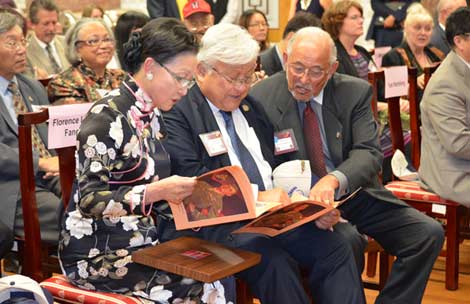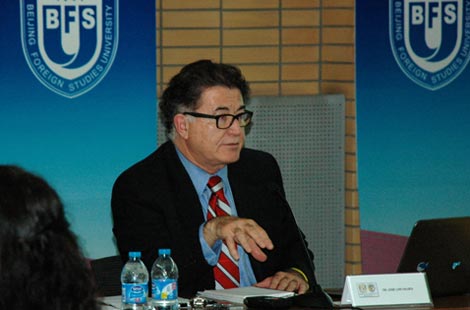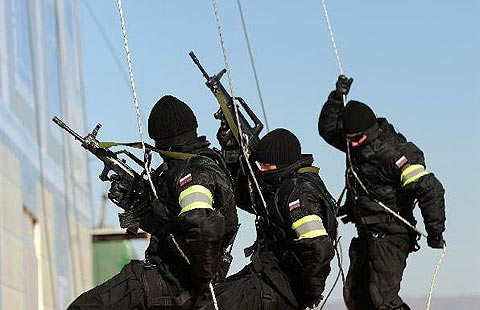Treating both symptoms, root causes needed to fight Ebola
Updated: 2014-10-26 19:12
(Xinhua)
|
||||||||
BEIJING - According to the latest figures released by the World Health Organization (WHO), more than 10,414 people have been infected with Ebola and nearly half of them have died.
The deadly Ebola virus, which first broke out in West Africa in March, has put the whole world on high alert since it spread to Europe and the United States. Many countries even tried to shut out the virus by closing their borders.
Such an approach cannot be effective. On the contrary, it only leaves the situation worse and isolates countries when they need help most. To counter Ebola needs the international community's effort of treating both symptoms and root causes.
In terms of "treating symptoms," the world is speeding up efforts to combat the Ebola virus. China has pledged a new batch of aid including offering some 82-million-US-dollar cash and materials and sending health experts to West Africa; the European Union agreed to boost its aid for Africa to one billion euros (about 1.26 billion dollars); the United States has sent to Guinea an expert to help the government curb Ebola.
With the international assistance, encouraging news is being reported from the Ebola battlefront: in some treatment centers, patients are receiving the care they need. In several locations, community-based programs are yielding promising results.
Good news about vaccines also came from the WHO. Results of most advanced vaccines are expected to be available in December 2014 and efficacy trials in accepted countries will begin in this time frame.
However, a lack of available beds in Africa's Ebola clinics is forcing many families to care for sick relatives at home, risking a further spread of the virus. A shortage of labs capable of handling potentially infected blood samples has also made it difficult to track the outbreak.
As to the root causes, why most of the patients infected with the deadly virus being treated in the United States have recovered while half of Ebola patients in West Africa lost their lives?
WHO Director-General Margaret Chan has said what makes the outbreak so large, so severe, and so difficult to contain is poverty. Economic depression, high unemployment, destroyed public health system in the West African countries following years of war fueled the Ebola crisis.
The Ebola virus emerged in West Africa 40 years ago. If not at the price of thousands of deaths of African people and the fear of Ebola's entrance into Europe and the United States, the developed countries with advanced pharmacy industry might still not develop vaccine for the poor African countries.
In a bid to fundamentally end the Ebola crisis, the international community should strengthen economic, security assistance to the world's poorest nations. That will eventually help the countries improve capability of epidemic prevention and control not only in the fight against Ebola, but also in combating the next "Ebola."

 WWII's Flying Tiger veterans saluted
WWII's Flying Tiger veterans saluted
 600-year-old Chinese book found in California
600-year-old Chinese book found in California
 China's growing role in Mexico not a threat to US: expert
China's growing role in Mexico not a threat to US: expert
 Beijingers see blue sky again after smoggy days
Beijingers see blue sky again after smoggy days
 9th Rome Film Festival kicks off
9th Rome Film Festival kicks off
 Highlights of China Fashion Week
Highlights of China Fashion Week
 Remembrance of Flying Tigers & WWII Veterans
Remembrance of Flying Tigers & WWII Veterans
 Lang Lang plays at the UN Day concert
Lang Lang plays at the UN Day concert
Most Viewed
Editor's Picks

|

|

|

|

|

|
Today's Top News
600-year-old Chinese book found in California
Asia, LatAm to lead air travel by 2034
China's growing role in Mexico not a threat to US
Improving air quality as 'priority'
The road goes on for teacher Levine
Redesigned SAT not brainwashed
Police step up efforts against smugglers
Stricter border check for terrorists
US Weekly

|

|








